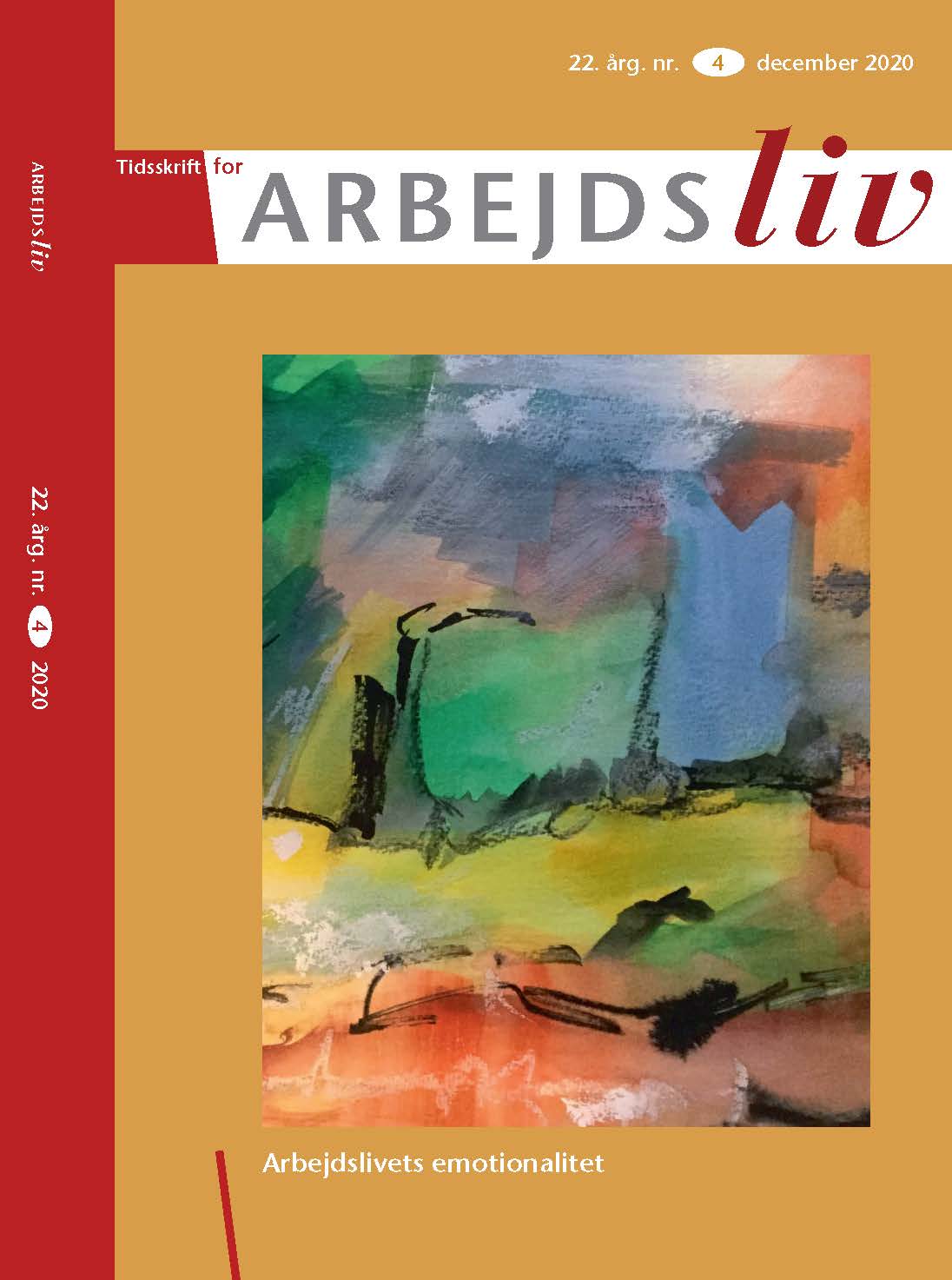Emotional dimensions in research work
– involvement in research on students and psychosocial problems
DOI:
https://doi.org/10.7146/tfa.v22i4.124213Keywords:
Emotionalitet, Forskningsarbejde, Refleksivitet, Følelseshåndtering, Normer for følelserAbstract
In this article, we explore emotional dimensions of the work of conducting qualitative research. The article is based on our work in a longitudinal, qualitative research project, the Student Life Project (2018-21), which explores life and psychosocial problems in Danish higher education. The researchers follow 47 students from different fi elds of study at seven Danish universities and university colleges, who have experiences with psychosocial problems, ranging from stress issues related specifically to the study, to broad social difficulties and/or clinical diagnoses. Inspired by Hochschild’s understanding of norms for and management of emotionality at work (Hochschild, 1998), we discuss how it affects us to do research work in a field in which we are already involved in several ways. We unfold the importance of emotionality in relation to our experiences of dilemmas, strains and enthusiasm in the relationship with the students. We explore the significance of emotionality in the direct interaction with the students, in the processing of the interviews and in relation to the social and cultural norms for emotionality in research work.
Downloads
Published
How to Cite
Issue
Section
License
Forfattere, der publicerer deres værker via dette tidsskrift, accepterer følgende vilkår:
- Forfattere bevarer deres ophavsret og giver tidsskriftet ret til første publicering, samtidigt med at værket ét år efter publiceringen er omfattet af en Creative Commons Attribution-licens, der giver andre ret til at dele værket med en anerkendelse af værkets forfatter og første publicering i nærværende tidsskrift.
- Forfattere kan indgå flere separate kontraktlige aftaler om ikke-eksklusiv distribution af tidsskriftets publicerede version af værket (f.eks. sende det til et institutionslager eller udgive det i en bog), med en anerkendelse af værkets første publicering i nærværende tidsskrift.
- Forfattere har ret til og opfordres til at publicere deres værker online (f.eks. i institutionslagre eller på deres websted) forud for og under manuskriptprocessen, da dette kan føre til produktive udvekslinger, samt tidligere og større citater fra publicerede værker (se The Effect of Open Access).





